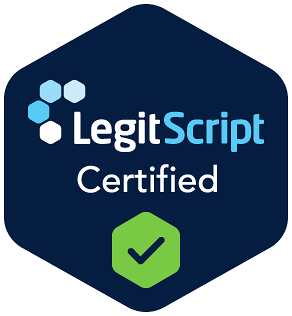Intensive Outpatient Program for Substance Abuse in Colorado
At Drift Behavioral Health, you can find healing that fits your life. Our Intensive Outpatient Program helps you recover without putting other life responsibilities on pause.

What Is an Intensive Outpatient Program (IOP)?
An IOP provides structured treatment that fits your schedule. It’s ideal if you’re stepping down from more intensive care or dealing with early-stage substance use issues, but can’t step away from your other responsibilities.
Addiction Treatment Approach
At Drift, we understand that addiction often starts as a way to cope with pain or stress; it’s not a character flaw. To support growth, we ensure a safe place to deal with substance use struggles and co-occurring mental health conditions. We believe in harm reduction, which involves helping you make safer choices while working toward your goals. Your plan is built just for you, with a focus on lasting recovery.
What to Expect in Our IOP Program for Substance Use Disorders
Our program gives you support while letting you live at home. We combine proven treatments and group work with whole-person care for complete healing.
Weekly Structure and Flexibility
You’ll attend 3–5 days a week for about 3–4 hours each day, including individual and group work. Day sessions run Monday through Saturday, while evening groups happen Monday through Thursday. This setup works well for people juggling treatment with jobs, classes, or family needs.
Individualized Therapy and Clinical Support
You’ll meet with your therapist, who gets to know your challenges and goals. Group sessions cover relapse prevention, building coping skills, and handling emotions healthily. When needed, our medical staff can help with medication management.
Clinical Therapies and Holistic Options
We combine proven treatments with whole-person care to help you heal completely.
Evidence-Based Core Therapies
- Cognitive-behavioral therapy
- Dialectical behavior therapy
- Motivational interviewing
- Relapse prevention strategies
Experiential Treatments
- Mindfulness practices
- Art and music therapy
- Nutritional counseling
- Yoga, Reiki, and sound bowl healing (if appropriate)
Optional 12-Step Integration
- Join Alcoholics Anonymous or Narcotics Anonymous, or other support groups if you find them helpful
- Connect with mentors who support your recovery, and engage with resources that guide you outside of treatment
Medication-Assisted Treatment (MAT) in IOP
Medication can make recovery more comfortable and provide a solid ground to participate in therapies. Options like buprenorphine, methadone, naltrexone, or Suboxone can help manage cravings. Our licensed medical professionals closely monitor your progress, adjusting doses as needed.

Family Support and Involvement
Our family therapy includes:
- Sessions to help rebuild trust and improve communication
- Educational workshops for loved ones to learn about addiction
- Setting healthy boundaries and improving communication skills as a family
Step-Down Care and Aftercare Planning
Recovery continues after your treatment program ends. We help you transition to your next steps with ongoing support.
Individualized Discharge Plans
- Support transitioning to outpatient therapy, sober living, or community support
- Connections or referrals to doctors who understand your history
- Help finding recovery groups that match your therapy needs and goals
Long-Term Support After IOP
- Alumni networks and events to stay connected and maintain togetherness
- Therapy referrals and check-ins to sustain your progress
- Practical skills to help you handle triggers and build healthy habits
Is Drift's IOP Program Right for You?
Our program helps people who need flexible care that aligns with their lifestyles and needs.
Who We Serve
- People transitioning from higher care levels who need structure with more independence
- Working individuals, students, young adults, and parents who need flexible treatment schedules
- People in treatment for the first time and those who’ve relapsed
Admission Process
We offer same-day intake assessments to begin treatment. To start, we do detailed screenings of the substances in your system to inform your care plan. If you start our IOP while on any medication, we’ll help you manage this. For those who need stabilization first, we’ll refer you to detox centers and help coordinate your care.
Get Started With Flexible, Effective Treatment
Asking for help is a big step, and our team is ready to guide you immediately. Reach out with questions, to verify insurance, or to start a same-day assessment. No waitlists to delay your care. Whether in-person or virtual, your healthier life starts when you’re ready.
FAQs
Who is a good candidate for an IOP?
IOP works best if you need support but are stable enough to live at home. This includes people stepping down from more intensive care or those balancing treatment with other commitments.
How long does an IOP last?
Most people attend IOP for 2–6 months, but your timeline depends on your needs and progress.
How does an IOP differ from partial hospitalization programs?
Compared to PHP, IOP requires fewer weekly hours (about 9–15 instead of 25–30), making it easier to balance with work or family.
